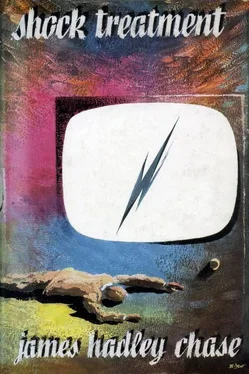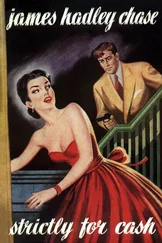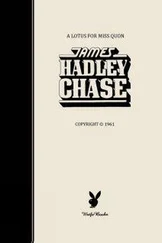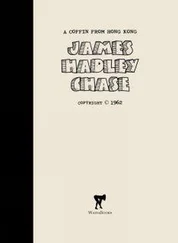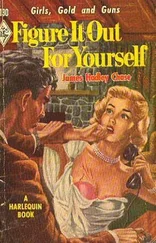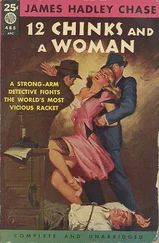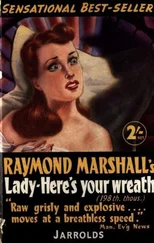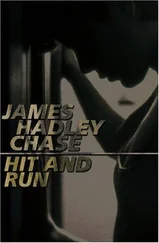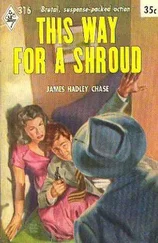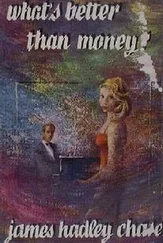I hesitated for about three seconds, then I told him. I gave him the whole story from the moment I first met Gilda to the last time I saw her. I held nothing back, and it was a relief to get the whole thing off my mind.
He sat listening, not moving, his eyes fixed on the paperweight on his desk.
When I was through, he got abruptly to his feet and began to prowl around his big office, his hands in his trousers pockets, his face looking leaner than ever.
“That guy’s instinct for smelling murder!” he said. “It’s fantastic!”
“But she didn’t kill him,” I said. “He killed himself.”
He turned to look at me.
“That was your luck. The setup was for murder, and Maddox spotted it. I’m not so sure that what you’ve told me couldn’t make it tougher for her. The DA is going to prove that Delaney was a drunk. He’s got the maid who worked there who’ll tell the court Delaney began to hit the bottle as soon as he got up in the morning and went on hitting it. He’s going to show that Mrs Delaney could have put the cyanide in his whisky which killed him instantly. Now that you’ve claimed to have found the glass, the DA is going to say she washed the glass out, then rinsed it in whisky and put it by his side. You spoilt that planted clue of hers by absent-mindedly picking up the glass and putting it away. He is going to show that it was Mrs Delaney who arranged the TV set so that it looked as if he had electrocuted himself. If it gets out that you two were lovers, there’s not a thing I can do for her. I’ve got to make the jury believe she was loyal and faithful to him and because he had no more money, he took his life.”
“That’s how it did happen!” I said. “They’ve got to believe it!”
“Well, we’ll see. You can leave it to me now. Everything depends on whether the police find out you two were lovers. If they do, both of you are sunk. If they don’t, then she has a chance. Now remember this, if she is found guilty, they won’t send her to the gas chamber. She’ll get maybe ten years. So don’t do anything crazy like confessing, because it won’t help her. She’ll get a longer sentence, and you’ll be in trouble too.”
“Well, okay,” I said uneasily. “How about paying you? Do you want money now?”
“No. When it’s over and the excitement’s died down, I’ll want five thousand bucks from you. But right now I’m going to put out the story that I am so sure Maddox has made a mistake this time that I’m going to defend her for nothing just for the satisfaction of proving Maddox is wrong. The press know all about the fights I’ve had with Maddox. They’ll lap up a story like that. It’ll also make an impact on the jury. You leave all that to me. I’ll go and talk to her this afternoon.”
I went back to my cabin.
Soon after the trial, I would have to find five thousand dollars to pay Hunt. To raise the money I would have to part with practically every dime I had saved. I would be cleaned out.
I would have to leave Glyn Camp after the trial and it wouldn’t be possible now for me to start again on my own. I would have to find a job, and there and then I wrote to a firm in Miami I had had dealings with, asking them if they could make use of my services.
There was nothing for me to do now but to wait the outcome of the trial and to hope Boos wouldn’t find out about the Italian restaurant.
I wanted badly to write to Gilda, but I didn’t dare.
She was in my mind, night and day, day and night, and I wondered continually if she was thinking of me.
Not knowing now how she felt about me tormented me.
Five weeks after Gilda’s arrest, on a hot September morning, the trial opened in an atmosphere of tension and excitement.
Those five weeks had been anxious ones for me, but as the days passed and I heard nothing from the police, I began to feel more confident that they hadn’t found out about us nor had anyone apparently recognized Gilda at the Italian restaurant — and they would have done I felt sure, for, by now, every newspaper carried photographs of her.
As one of the principal witnesses for the prosecution I was kept in the witness room away from the court during the opening proceedings.
The other witnesses waiting with me were Delaney’s Mexican maid, Maria, Sheriff Jefferson, Doc Mallard, the pharmacist who had sold Gilda the cyanide and a fat, important looking man I hadn’t seen before who kept to himself.
There was a police officer in the room and he didn’t allow us to talk. I could see poor old Doc looked pretty shaky and unhappy and he had lost all his arrogance.
Jefferson was grim-faced, and he just nodded to me and then studiously avoided looking at me. I didn’t blame him. I knew he had guessed I had had something to do with Delaney’s death, and it was through me to a large extent that he had been forced to resign.
It wasn’t until half-past two in the afternoon that I got my call, and that was after Doc Mallard, Jefferson and the pharmacist had been called.
I braced myself.
I hadn’t seen Gilda now for six weeks and I remembered Hunt’s warning.
As I walked down the corridor towards the courtroom I asked the police officer escorting me how the trial was going.
“That guy Maddox!” he said. “This is the fourth time he’s tangled with Lowson Hunt and from the look of it, he’s scored again. You should have heard him sound off. By the time he was through with his figures and his hunches, the jury was looking away from her, and that’s always a bad sign.”
As I walked into the courtroom, I didn’t look at Gilda. It wasn’t until I had taken the oath that I glanced in her direction.
My heart gave a lurch when I saw how strained and pale she was. But she looked beautiful. I had never seen her look more beautiful, and I longed to go to her and take her in my arms.
She didn’t look at me and that hurt. She sat motionless beside Hunt, staring down at her hands.
I glanced over at the jury. They were a dead-looking lot: three of them women, the rest men. They stared at me, their eyes bored.
The DA got up and began questioning me about the TV set.
I went through the story of how I had found Delaney and why I had assumed he had died from an electric shock.
The DA took me over the story about finding the glass.
The jury now lost their bored expressions and I could see they were listening intently.
“I believe there was an experiment carried out by you and Mr Harmas,” the DA said, “to do with the removing of the back of the set. Would you tell the jury just what this experiment was, Mr Regan?”
“Mr Harmas seemed to be under the impression that Delaney, paralysed as he was, couldn’t have reached the bottom fixing screws that held the back of the set in place,” I said. “I tried to remove the screws from Delaney’s wheel chair and had great difficulty in reaching the screws.”
“Is it not a fact,” the DA said, “that when you were tied into the chair you couldn’t get anywhere near these screws? Nor could you pick up the screwdriver that was lying on the floor?”
“That’s right,” I said, and I had to make an effort not to look at Gilda.
The DA wasn’t satisfied with that. He took me over the experiment again in different words, asking questions, enlarging, and generally hammering into the minds of the jury that Delaney could not have taken off the back of the set nor could he have picked up the screwdriver.
At last he seemed satisfied he had made his point and he stepped back.
“Okay, Mr Regan, that’s all,” he said, and glanced at Hunt.
Without even bothering to get out of his chair, Hunt said he had no questions to ask me, but he would call me later.
I was taken out to spend another hour in the stuffy little witness room; this time on my own.
Читать дальше
